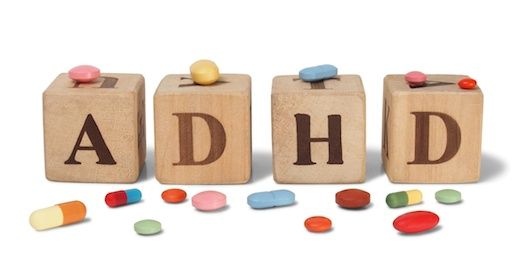Methylphenidate Titrated to Achieve Remission of Adult ADHD
Individualized dosing helped achieve ADHD remission in almost 50% patients.

A placebo-controlled trial with extended release methylphenidate used individualized dosage titration to achieve remission of symptoms of attention-deficit/hyperactivity disorder (ADHD) in almost 50% of treated adults.
The protocol differed from several that have investigated the efficacy of osmotic-release oral system (OROS) methylphenidate (Concerta/Janssen) in adults, by not assigning subjects to specific dosage or titrating to a partial reduction of symptoms.
According to lead author David Goodman, MD, Department of Psychiatry and Behavioral Sciences, Johns Hopkins University School of Medicine, Baltimore, Maryland, "By design, these studies did not explore the possibility that allowing additional OROS methylphenidate dose adjustment(s) might produce further improvement, remission of symptoms, or better tolerability.”
The current trial randomized 357 adults diagnosed with ADHD to receive six weeks of placebo or OROS methylphenidate, titrated as tolerated for symptom remission or reduction. The baseline symptom severity for inclusion in the study was a rating of 24 or higher on the adult ADHD Investigator Symptom Rating Scale (AISRS), and those who were admitted to the study had a mean rating of 37.8.
Dosage was initiated at 18mg per day, and could be increased at each of the next three weekly visits to 36, 54, or a maximum of 72mg until subjects achieved an AISRS score of 18 or less, corresponding to remission, or reached a limit of tolerability. Goodman and colleagues noted that the AISRS scores range from 0 to 54, and a score of 18 or less was consistent with that found in adults who do not have an ADHD diagnosis.
A total of 141 subjects in the active treatment group and 138 in the placebo group completed the six-week study period. In the active treatment group, 13.6% remained on 18mg, 23.1% increased to 36mg, 24.3% to 54mg, and 39.1% to 72mg. At end point, the active treatment group had a statistically significantly greater reduction in symptoms than those receiving placebo, with a mean reduction of 17.1 points to a mean score of 12.44 compared to 11.7-point reduction to a mean score of 13.3 with placebo.
A remission in symptoms, with an AISRS score of 18 or less, was achieved by 45% of those receiving medication, compared to 30.8% of those in the placebo group. The active agent was superior to placebo on secondary efficacy measures as well, including reduction of symptom frequency, and improved cognitive function, work productivity and quality of life.
"This improvement over time as well as the waxing and waning of symptoms and responses suggests that clinicians may consider allowing a period of time, weeks or longer, between OROS methylphenidate dosage adjustments with continuous monitoring such that the benefits of a particular dose have sufficient time to emerge," Goodman and colleagues recommended.
The controlled trial with individualized dosing of OROS methylphenidate, “Randomized, 6-Week, Placebo-Controlled Study of Treatment for Adult Attention-Deficit/Hyperactivity Disorder: Individualized Dosing of Osmotic-Release Oral System (OROS) Methylphenidate with a Goal of Symptom Remission, was published in the January issue of the Journal of Clinical Psychiatry.
Related Coverage:
Defining ADHD Symptoms into Adulthood
Is Persistence of ADHD into Adulthood a Matter of Diagnosis?
CDC: 80% of Children’s Doctor Visits for ADHD Involve Stimulant Medication